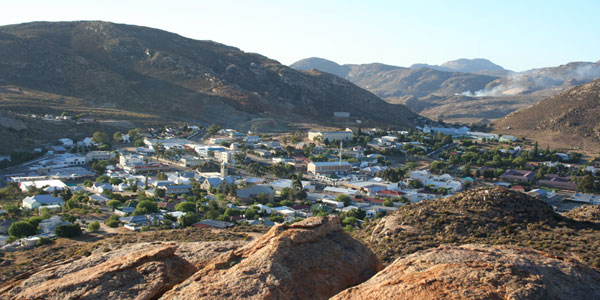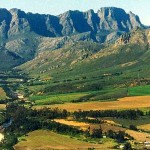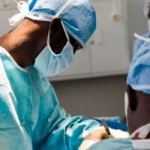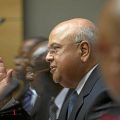Batlharos – Government has made available R2 billion to support Fetsa Tlala (End Hunger), government’s Integrated Food Production Initiative aimed at producing enough food to meet the population’s needs.
The announcement was made by President Jacob Zuma on Thursday while officially launching Fetsa Tlala in Batlharos outside Kuruman in the Northern Cape.
The programme is a multi-sectoral approach by government to deal with structural problems of food insecurity.
“We are making an amount of R2 billion available for this programme as part of comprehensive support to farmers and for distribution to provinces. The initiative intends to put one million hectares of land under production of maize, beans and potatoes,” Zuma said.
Through Fetsa Tlala, government intends to assist small-scale and smallholder producers to place at least one million hectares of arable land under production by 2019 across the country.
The President said with Fetsa Tlala, government also intends to shift perceptions about agriculture and farming in general.
He said the impression that agriculture is regarded as less important is counterproductive. Agriculture is a key priority for government, as it forms part of the six job drivers identified in the New Growth Path. The other five are mining, tourism, the green economy, manufacturing and infrastructure development. According to President Zuma, this demonstrates the seriousness government has attached to agriculture for food security, job creation and economic development.
Zuma said through Fetsa Tlala, all underutilised agricultural land must be put under production.
“We are encouraging people to go back to farming. We are encouraging every household to develop a food garden. We want to see women’s co-operatives and community groupings focusing on vegetable production, livestock or chickens to earn a living and fight hunger and poverty,” he said.
Manyending Agricultural Co-operative project
Zuma — who also visited the Manyeding Agricultural Co-operative project, which is thriving in terms of fighting hunger and food insecurity in villages east of Kuruman — said he was encouraged that the overall food insecurity figure was declining due to government programmes.
The co-operative, which has a total of 159 beneficiaries from Manyeding and the surrounding villages, is situated on a 137-hectare land. It produces organic vegetables such as potatoes, tomatoes, spinach, green beans, cabbage and pumpkin.
Since the establishment of the co-operative in 2010, many jobs have been created for the locals. The co-operative supplies fresh produce to Pick ‘n Pay, Boxer and Spar.
However, Zuma said there were still families that live in poverty and the country also remained a net importer of food, instead of being a major food producer.
Maximising land use
According to the President, there is a significant amount of land that still lies fallow, especially in rural areas, and some of the land that has been acquired through land reform.
He said smallholder farmers, communities and households will be assisted through the provision of mechanisation support and distribution of production inputs and technical services.
Much of the worst poverty is concentrated in the former homelands. The homelands, which accounted for 13 percent of the country’s land, were home to half of the black population in South Africa before 1994.
These areas are still characterised by low incomes and high rates of infant mortality, malnutrition and illiteracy.
“These areas have remained extremely poor and underdeveloped, and are heavily dependent on remittances from workers in industrial South Africa,” Zuma said.
He said South African agriculture continued to be characterised by a racially skewed distribution of assets, support services, market penetration, infrastructure and income.
“Some 36 000 large-scale farmers control over 86 million hectares of farmland, while 1.4 million black farmers have access to about 14 million hectares of farmland,” he said.
Primary Animal Healthcare programme
The event also saw the launch of the Primary Animal Healthcare (PAHC) programme in Batlharos as part of the Agriculture Department’s initiative to combat animal diseases and to improve access to veterinary services, especially in remote rural areas.
The PAHC programme is a nationwide project aimed at complementing the recently approved Compulsory Communality Services (CCS) programme for newly qualified veterinary doctors in order to capacitate provinces.
A total of R326 million has been set aside to support the PAHC and the CSS programme in the next three-year Medium Term Expenditure Framework (MTEF) cycle. – SAnews.gov.za








